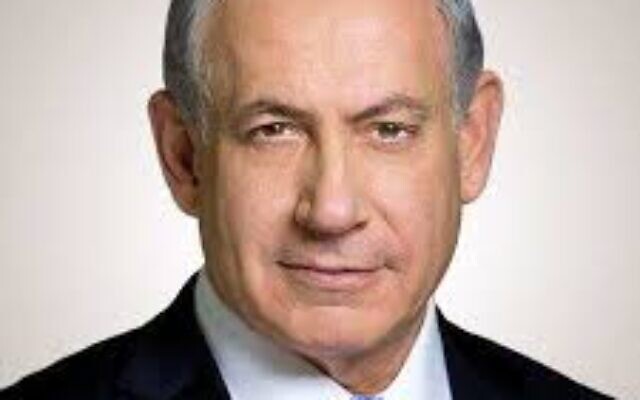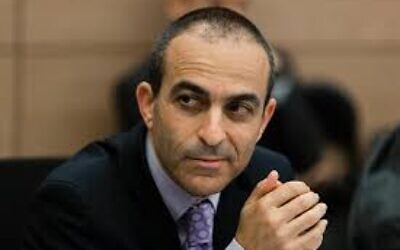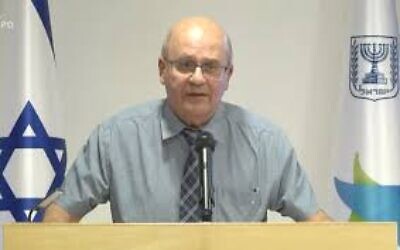Some Israelis Believe COVID Lockdown Political
As restrictions from second nationwide lockdown are loosened, no one is betting against a possible third lockdown.

As Israelis slowly start coming out of their second nationwide lockdown due to the pandemic, reports and polls reflect a shaken and disillusioned population. Rather than feeling liberated from restrictions that included not traveling more than one kilometer, or 0.62 miles, from their homes, a majority of Israelis believe the more-than-three-week lockdown was politically, rather than medically, inspired.
The Guttman Center for Public Opinion and Policy Research at the Israel Democracy Institute recently released the latest of 13 surveys examining the public’s attitudes towards government policies on the COVID-19 outbreak and its economic consequences. The study showed 55 percent of Israelis believe that “political considerations” were behind the lockdown while only 39 percent believe that “health considerations guided Israel’s decision-makers in taking this unprecedented step.
Israel was one of the first countries to enter a second nationwide lockdown, doing so on Sept. 18, the eve of Rosh Hashanah. The country’s first, in March, brought the new COVID case numbers and deaths down drastically. The caseload remained low in April through June, only inching up to 2,000 new cases a day in July and August. It was widely reported that the country opened up its schools and businesses too quickly, resulting in new cases skyrocketing.
By September, 4,000 or more new cases were reported every day, including one day of 6,000 new cases, and more than 8,000 cases a day several times in October, according to the Israeli government. When the government decided to enter the second lockdown, the Health Ministry said the rules could be eased if the daily rate dropped to 1,000 cases.
Israel has now finally achieved that goal with many days only seeing a few hundred new COVID cases. Still, if Israelis are feeling any relief, it’s not appearing in the polls and protests that continue across the country.
According to the latest IDI survey, only 31 percent of Israelis trust Prime Minister Benjamin Netanyahu to lead the country’s effort against COVID-19. While this has slightly improved from the 27 percent who expressed trust in Netanyahu last month, it is still considerably lower than the 57.5 percent of the population who reported trusting him during the first lockdown.

In contrast, IDI reported that 61 percent of the public expressed faith in the efforts of Ronni Gamzu, Israel’s national COVID-19 coordinator.
The national crisis spurred by the pandemic appears to have more starkly revealed pre-existing divisions within the Israeli population. At one point during the second lockdown, a top Health Ministry official reported that 34 percent of those diagnosed with COVID-19 were among the ultra-Orthodox community, despite it constituting only about 12 percent of the population.
“The ultra-Orthodox sector, due to overcrowding and prayers which sometimes violate the rules of conduct, has reached a high level of morbidity,” said Health Ministry Director-General Chezy Levy.
According to Israeli newspaper reports, many Israelis believe the whole country was put in lockdown rather than just the hot spots in the ultra-Orthodox communities or neighborhoods because of political pressure on the prime minister from his ultra-Orthodox coalition partners. The ultra-Orthodox party leaders did not want their constituencies to be singled out with restrictions.
On Sunday, Oct. 18, some ultra-Orthodox elementary and middle schools reopened for tens of thousands of students despite lockdown regulations that only allowed preschools to open.
The government acknowledged that there was no way the police could control and fine schools breaking the lockdown rules. In the past week, the Justice Ministry drafted a plan to strip funding from the schools that reopen in violation of the emergency coronavirus regulations, reported Israeli newspaper Haaretz.

“Institutions and organizations that violate the rules and break the law risk administrative or criminal proceedings, the cancelation of their licenses and the cancelation of their funding in appropriate cases,” said Maj. Gen. (Res.) Roni Numa, who is coordinating the Health Ministry’s efforts against the virus in the ultra-Orthodox community.
Anger against what is seen as preferential treatment of the ultra-Orthodox community has only fueled the anti-government protests that call on Netanyahu to resign over his trial in three corruption cases and his government’s handling of the coronavirus crisis. Hundreds of small businesses closed or were teetering due to lockdown restrictions, and unemployment reached nearly 1 million, according to the Israeli government.
By Oct. 20, however, lockdown restrictions were being lifted even from most ultra-Orthodox areas, and in a promising sign, the Israeli Employment Service reported that the daily number of people returning to work was double the number of those registering for unemployment.
Despite the good news, no Israeli is counting out a third national pandemic lockdown.



comments